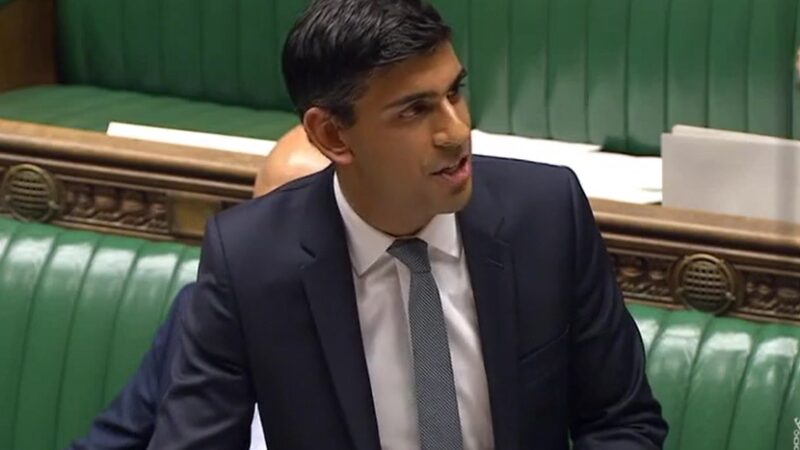Here's what Sunak offered and why it's not enough.

Yesterday, the dithering UK government relented and announced additional help to employees, businesses and the self-employed reeling from the impact of coronavirus.
The government’s on-the-hoof £5bn policy package will provide some relief but is unlikely to boost demand sufficiently to prevent a spike in unemployment.
A bold strategy for redistribution of income/wealth and investment to rebuild the economy is needed, but is sadly not on the government’s radar.
Here’s what the government announced and why it’s not good enough. In short, too many people are left out, it doesn’t protect low earners and it doesn’t do enough to force companies to behave ethically.
Employees
From 1 November 2020, the current subsidy for employee wages will be replaced by a new Job Support Scheme. It will run for six months.
To be eligible, employees must not be on redundancy notice i.e. must hold a viable job. Employees need to work a minimum of 33% of their usual hours.
For every hour not worked, the employer and the government will each pay one third of the employee’s usual wage.
Such employees can receive nearly 77% of their gross wage. The government contribution will be around 22% (compared to 80% when the furloughed staff scheme began) and capped at £697.92 per month.
Employers will be required to cover 55-56% of the wage. The 22% contribution from the government is a maximum and does not cover pension and national insurance contributions paid by employers.
The government support is tapered. For example the government contribution for someone able to work 50% of their usual hours, declines to 17%.
In order to claim subsidy, large businesses will be required to demonstrate that they have been adversely affected by COVID-19.
Problems
- Someone on the national minimum wage of £8.72 an hour may receive only 77% of their wage whilst facing 100% of the living costs.
The government has failed to set a minimal level of financial support for individuals. - Also, there is still no help for millions of people who were caught in-between jobs at the start of the furlough staff scheme in March.
- The plight on those on zero hour contracts is not addressed.
Self-Employed
The financial support will be restricted to self-employed individuals who qualified for previous rounds of support.
This initial grant will cover 20% of average monthly trading profits, paid out in a single instalment covering 3 months’ worth of profits, and capped at £1,875 in total. The second grant will cover a three-month period from the start of February until the end of April.
Problems
- Millions of self-employed who received little or nothing from the previous support schemes will again miss out as the eligibility rules remain unchanged. The 20% promised grant will leave many to face hardships.
Businesses
The Chancellor announced an extension of the period of reduced rate of VAT (5%) for hospitality and tourism sector from 12 January to 31 January 2021.
All businesses that borrowed under the government’s Bounce Back Loan Scheme will have the option to extend the repayment period from six to ten years.
Problems
- Some industries, such as aviation and events management, will take a take long time to return to normality. The government’s one-size fits all scheme does not take account of the specificities of affected sectors and fails to help industries in dire need.
- The government’s loan scheme has helped many businesses, but is also storing problems for the future. Loans will need to be repaid and that will exert pressure on business cash flows.
- Instead, wherever possible, the government could have taken an equity stake in businesses. This would relieve pressures on cash flows and funds could instead be invested in productive assets. The government could, if it so desired, sell its equity stake in the recovered businesses to recoup its investment.
- The government urges large companies benefiting from the wage support scheme to not pay dividends or engage in share buybacks. No enforcement mechanism has been announced.
Companies, particularly those controlled by private equity and hedge funds, load business entities with intragroup debt at exorbitant interest rates, often from affiliates in tax havens. They extract returns in the form of interest payments rather than dividends. The government has shown no inclination to curb such games.
Other flaws in Sunak’s scheme
- The government could have capped energy and transport prices. Some 12.8 million households have savings of £1,500 or less, and the household debt is around £1,680bn. So people’s capacity to absorb the impact of coronavirus is exhausted.
- The government could have exempted the low-paid from income tax, but no redistributive measures have been announced.
- Many of the jobs, especially in the retail sector, have probably permanently disappeared. Many town centres need to be remodelled and the economy needs to be restructured.
Private sector alone can’t rebuild the economy and historically has shown little appetite for new industries requiring massive investment for unknown risks.
The government’s 16 page “Winter Economy Plan” provides no glimpse of any vision or strategy for rebuilding the economy. Its eight pages have almost no text and the other eight relate to the above proposals and a regurgitation of commitments already announced.
Prem Sikka is a Profesor of Accounting at the University of Sheffield and a member of the House of Lords. He tweets here.
Left Foot Forward doesn't have the backing of big business or billionaires. We rely on the kind and generous support of ordinary people like you.
You can support hard-hitting journalism that holds the right to account, provides a forum for debate among progressives, and covers the stories the rest of the media ignore. Donate today.



